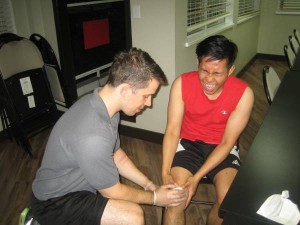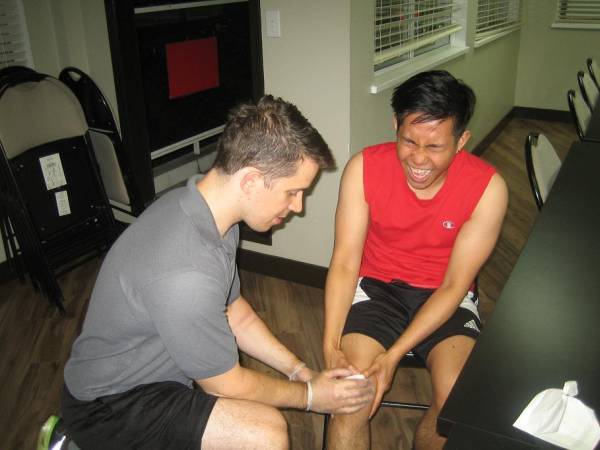Osteoarthritis is a type of arthritis that can trigger joint pain. On the other hand, there are certain types of infections that can also result to arthritis symptoms. The joint infections are typically due to staphylococcus bacteria but viruses and even fungi can also lead to joint pain and arthritis as well. Among adults, the hips and knees are typically affected by infection-related arthritis.
Gonococcal infection
Individuals who are sexually active face a high risk for gonococcal arthritis or joint infection due to gonorrhea which is a sexually transmitted disease. Take note that women are more likely to suffer gonococcal arthritis than men.
Just like with other bacterial infections, gonorrhea can spread from the blood directly into the joints. Gonococcal arthritis develops due to systemic inflammation as the body attempts to fight off the infection. Reactive arthritis after a previous gonococcal infection is also possible.
Non-gonococcal infection
The staphylococcus bacteria have been the leading cause of infectious arthritis. Even though bacterial joint infections can affect anyone, those who have diabetes, artificial joint or a chronic joint condition are at high risk.

Joint infection or septic arthritis usually starts once the bacteria in the blood invade the joint. There are some individuals who develop reactive arthritis a few weeks after a bacterial infection has already run its course. Take note that reactive arthritis is believed to be a by-product of the inflammatory response of the body to the initial infection. Campylobacter, salmonella and chlamydia are commonly linked with reactive arthritis.
Tick-related infections
The infections triggered by tick bites typically trigger arthritic symptoms such as babesiosis, Lyme disease and Rocky Mountain spotted fever. If Lyme disease is left untreated, it can lead to chronic joint pain. Rocky Mountain spotted fever and babesiosis usually trigger flu-like symptoms that can be complicated by joint pain. Both conditions can rapidly progress and can be life-threatening if not properly treated.
Viral infections
The arthritic joint pain frequently develops with certain viral conditions. Hepatitis C, hepatitis B, parvovirus infections and HIV are linked to arthritis symptoms. The joint pain caused by a viral infection typically subsides once the virus is treated. In most cases of viral infections, they do not cause lasting joint damage.
Fungal infections
In rare cases, fungal infections can affect the joints. Candida is a type of yeast that is a usual culprit but other fungi such as blastomyces and Histoplasma can also lead to joint pain and infection.
The risk factors for fungal arthritis include prolonged-use of steroids, diabetes, HIV and joint replacement surgery. Always bear in mind that fungal infections develop at a slow manner over weeks or even months.

